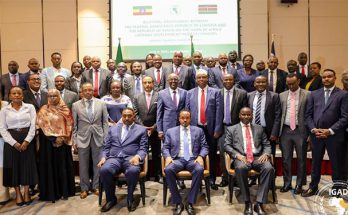 The pharmaceutical division is set to benefit by more broad access to the market following a course of action by the East African Community (EAC) States to set up a singular administrative organization for drugs. Pharmaceutical firms would then be able to reach the 160 million worth EAC market effectively.The office is also required to diminish time and costs of evaluations and endorsements of pharmaceutical gadgets.
The pharmaceutical division is set to benefit by more broad access to the market following a course of action by the East African Community (EAC) States to set up a singular administrative organization for drugs. Pharmaceutical firms would then be able to reach the 160 million worth EAC market effectively.The office is also required to diminish time and costs of evaluations and endorsements of pharmaceutical gadgets.
As of now, new prescriptions must be surveyed by various territorial administrative experts before being allowed into the market. Under the new course of action, once an office endorses a drug, it can be sold to all EAC States without national appraisals. Dr. Felista Chepwogen from Pharmacy and Poisons Board stated, “The focus of the proposed agency will be to regulate selected medicines and medical devices which are complex in nature and require special knowledge and expertise to authorise their use by the population.”
He also is designated as EAC Medicines Regulatory Harmonization Project official. He expressed that the timetables for review and enrollment of medical items entering local levels have been drawn out, chiefly in view of nonattendance of institutional structures that have legit command to deal with and process applications.
The select medicines will incorporate immunizations, vaccines, genetically modified (GM) products, medical appliances, pharmaceuticals for rare ailments, high-risk food items among others. A secretariat inside EAC’s division of Medicines and Food Safety will organize the joint activities for development of a single pharmaceutical and food safety office. This is expected from 2018 onwards. The proposed agency takes inspiration from the European Medicines Agency which regulates certain pharmaceuticals for 28 European Union nations with a total populace of 510 million.
Since 2015, national drug controllers of EAC, with the exception of Burundi and South Sudan have been conducting joint medication appraisal and market authorization conventions, including joint surveys of drug producing locales. Under the joint appraisals, firms attempting to present new meds inside the territory, still need to submit applications and pay costs to all countries independently.
The proposed formation of a solitary regulatory agency looks to dispose of duplication with the goal that applications are made to one organization itself. Dr. Chepwogen remarked, “The joint evaluations of medicines have minimised duplication of efforts and saved resources. The regime has resulted in faster registration timelines for jointly assessed dossier applications. It has also improved capacity for the regulators and the pharma industry.” He repudiated claims of undue slow-downs within the current joint regional assessment of medicines in EAC, saying they are frequently caused by pharmaceutical organizations that don’t react to regulatory questions speedily.



